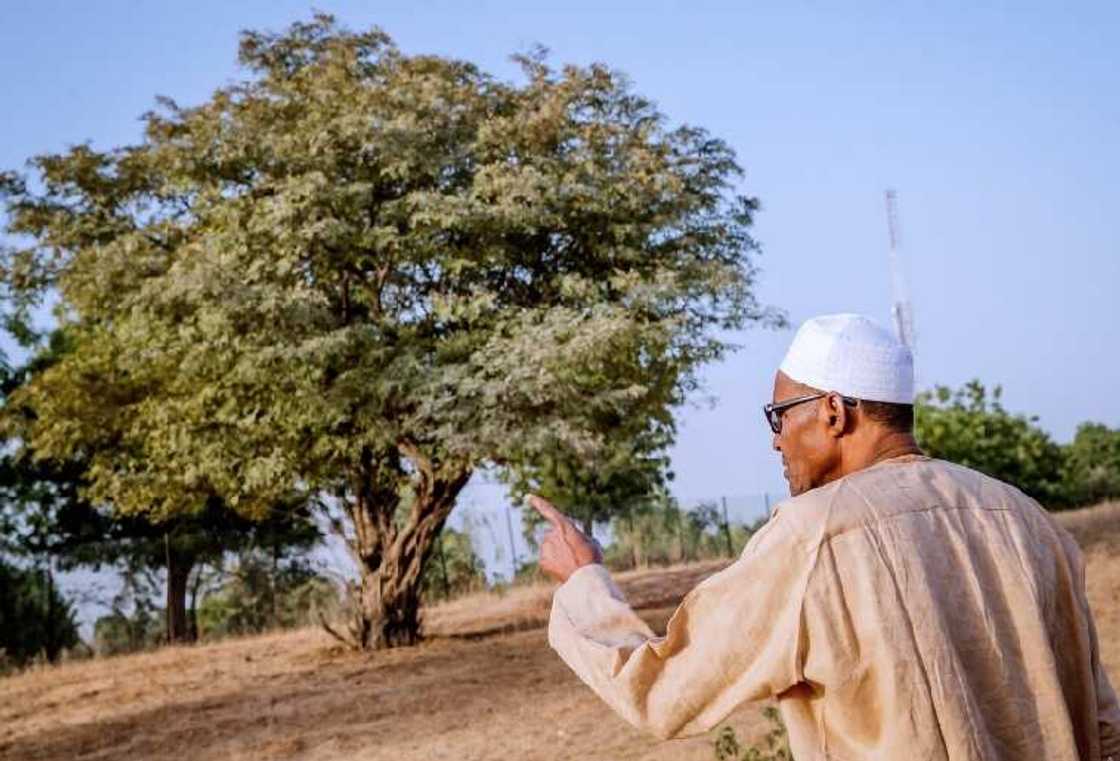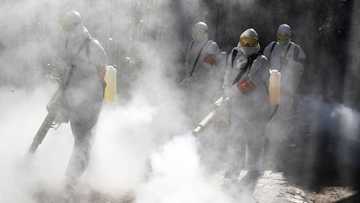COVID-19: Nigeria in danger of food insecurity, farmers warn
- The federal government have been alerted that Nigeria is in danger of food insecurity due to the COVID-19 pandemic
- The warning was given by Nigerian farmers and stakeholders in the agro-sector
- The COVID-19 pandemic has affected farmers and the agricultural sector in the country
PAY ATTENTION: Click “See First” under the “Following” tab to see Legit.ng News on your Facebook News
Nigerian farmers and stakeholders in the agro-sector, have warned that the country is in danger of food shortage as the COVID-19 pandemic hits hard on farmers and the agricultural sector.
This was contained in a statement made available on Monday, May 4 and jointly issued by Voices of Food Security, All Farmers Association of Nigeria, the Association of Small-Scale Agro-Producers in Nigeria, Ogbonge Women Farmers’ Association, Small Scale Women Farmers Organisation in Nigeria and Rice Farmers Association of Nigeria.
The group expressed concerns that smallholder farmers are not given adequate support or well catered for in its palliatives even as they grapple with the challenge of feeding the nation during the lockdown and immediately afterwards.

Source: Twitter
PAY ATTENTION: Get the Latest Nigerian News Anywhere 24/7. Spend less on the Internet!
They further disclosed that lockdowns and police intimidation, as a result, are affecting farmers ability to access inputs, especially in states far away from ports where trailers have to travel long distances in order to reach farmers.
Part of the statement read: “We applaud the government’s prompt efforts at ensuring that the Emergency Economic Stimulus Bill was signed into law.
“We also applaud the Central Bank’s unveiling of its plans to inject N3.5 trillion to support the economy through a stimulus package.
“Most recent federal government guidelines for the movement of agricultural produce to curtail food shortages and ensure effective 2020 crop production is appreciated. However, there is still silence on how smallholder farmers who have already suffered losses can be compensated.
“We observe that these palliative and recovery windows may well work for the manufacturing and other sectors, but we are concerned that they do not adequately cover the needs of agricultural sector stakeholders let alone meet the needs of the nation of smallholder farmers.”
The stakeholders expressed regret that farmers associations are not strictly termed as SMEs, and will likely not be eligible for SME financing from the CBN.
According to the farmers, the fall in oil prices further highlights the need for improved economic diversification in the country.
To address the challenges, the stakeholders recommend that government: “Work with smallholder farmers associations and farmers support organisations like us to come up with ways in which access to finance facilities can effectively support agricultural value chain actors, especially male and female smallholder farmers.”
The group further recommended that ministries of agriculture at state and federal levels, as well as the Central Bank of Nigeria, should consider facilitating agricultural insurance, especially for small scale farmers in order to forestall losses occasioned by climate change-induced flood, drought, erosion, etc.
Recall that the presidency recently ordered that the large number of food trucks that are being delayed at various checkpoints around the country be allowed passage.

Read also
Saudi mosque, Vatican City under lock, Covid-19 is respecter of nobody - Sultan-led NSCIA slams reopening of mosques, churches
A statement by the senior special assistant to the president on media and publicity, Garba Shehu on Tuesday, April 28, stated that the restrictions of movement as a result of the COVID-19 pandemic do not apply to vehicles transporting essential commodities, such as food.
NAIJ.com (naija.ng) -> Legit.ng: Same great journalism, upgraded for better service!
Coronavirus: Yam, rice and garri are the main food selling - Market women | Legit TV
Source: Legit.ng




